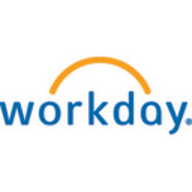

Find out what your peers are saying about Salesforce, Sprinklr, Zendesk and others in Community Platforms.




Workday is a cloud-based software solution that specializes in developing applications for capital and finance management applications. The system is built to work in global workforces and is adaptable. The global system ensures that users are up to date and can manage internal career-related information, and everyday business problems like timesheets, payrolls, and time off.
“A Pioneer in Software-as-a-Service”
Workday Human Capital Management tool is designed to simplify and streamline your work. It leverages machine learning to adapt capital management to a changing environment.
The Workday model is based on delivering a single system that uses a single source of data and a single security model to deliver a unique user experience. The system is user-friendly and ensures that employees and management can use it from any and all devices. Workday HCM integrates into a central system that includes financial management, payroll, recruiting, learning, and planning. Managers and employees can provide feedback to one another, too.
Workday’s features include:
Workday smart platform consists of the following modules:
Reviews from Real Users
Many organizations choose Workday because it provides an all-in-one modular solution for human capital and finance management. Our users say they like the ease of use for time-off requests, career and development segments, and overall HR management. The records and reporting capabilities are another popular feature.
"The solution was very good at reconfiguration and customization of their software. It helped us to meet federal regulations," said one user. Another said that the best feature is the optimization of the work day experience with a unified platform that can be applied across different business units. “You will never find a use case that cannot be covered," said a third.
We monitor all Community Platforms reviews to prevent fraudulent reviews and keep review quality high. We do not post reviews by company employees or direct competitors. We validate each review for authenticity via cross-reference with LinkedIn, and personal follow-up with the reviewer when necessary.